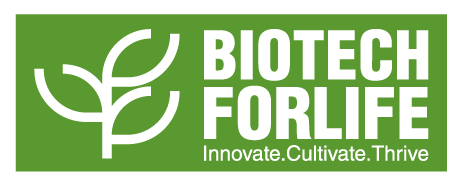Decoding Public Sentiments and Awareness About Agricultural Biotechnology: A Comprehensive Overview
Kristine Berdin | August 19, 2024
In 2023, various organizations collaborated to study the current attitudes of the public toward biotech, providing key insights on the factors affecting their perception and how to advocate biotechnology to the masses better.
Results showed that people from different sectors of society view their knowledge of biotechnology as helpful and are aware of the benefits it may bring and its potential risks.
There were two major misconceptions that the majority of the stakeholders believed (except for the scientists): a) eating GM foods will modify their genes, and b) eating plants infected with viruses will infect humans who eat them — both of which are not true.
This can be explained by the results that indicate knowledge of biotech is high for scientists, followed by journalists, extension workers, and students, however, it was relatively low for religious leaders, policymakers, businessmen, consumers, and farmer leaders/community leaders.
It was also revealed that social media (81.2% on Facebook) was the main source of information for the stakeholders followed by broadcast and web sources (54.8%), print sources (47.8%), and then person sources (33.3% from university scientists, 32.8% in R&D scientists).
Measures of trust were also conducted which indicated that all the following sources attain ‘some trust’ of the general public and only scientists were given a rating of ‘total trust’.
Despite scientists being the most trusted source, it was one of the least used due to its inaccessibility as they rarely interact with the local communities, raising a need for public forums and seminars to bridge the knowledge gap.
In terms of societal views and values, there was no evident strong approval of the technology, however, stakeholders maintained a favorable attitude (ranging from 3.81 to 4.27) toward biotechnology.
There was also a misconception among the participants that regulation on biotech food is under the industry itself when in reality, the government sets these policies which may involve those in the agricultural industry.
Nevertheless, there are reservations about biotech as the community also identifies that biotech products may only benefit large agricultural companies and may cause new allergens or contaminate other products.
Most of the concerns shared among the stakeholders are economic and health issues, hence the need to address the policies on GM crops only being purchased directly from commercial companies after one harvest season and vital information about GM food’s health effects being readily available for public consumption.
Furthermore, while stakeholders approve of animal biotechnology, it comes with strict reservations specifically, that it must be done with respect for animal rights to life and welfare (75.6%), and thorough assessment of unknown risks (73.7%).
Finally, the stakeholders strongly believe that regulations on biotech should include inputs from non-government sectors and that rigid compliance with protocols is necessary to ensure public health and avoid safety issues.
Note: At BiotechforLife, we invite you to join our BFF initiative—where you can stay engaged and make a difference in biotech!

